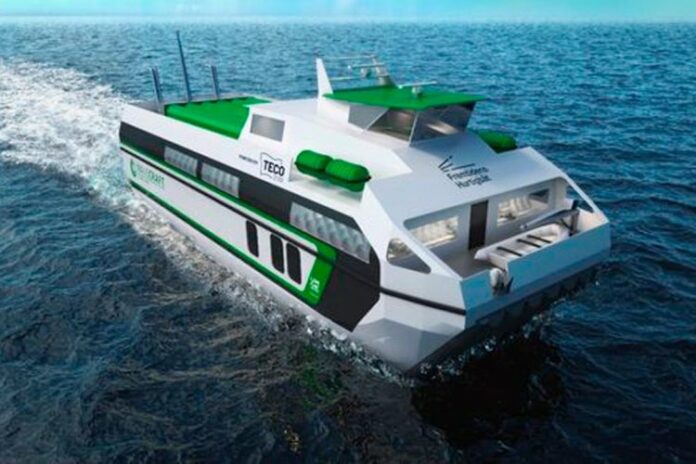TECO 2030 and Umoe Mandal has just delivered the documentation package to the Norwegian Maritime Authority for an approval in principle application of the World’s first fuel cell high-speed vessel design. The designed vessel is designed to be installed with a multimegawatt fuel cell system for full propulsion.
The ship will be constructed based on Umoe Mandal’s proven Crew Transfer Vessel (CTV) Surface Effect Ship (SES) technology and with the air-cushion catamaran design it will offer low imprint on surrounding environment, even in challenging and vulnerable ocean conditions. CTVs are often used during the construction, maintenance, and operation of offshore wind farms. This specific vessel will be a passenger vessel and have a service speed of 35 knots, a range of minimum 160 nautical miles and carry 275 passengers.
Once the vessel design and hydrogen propulsion plant has received the approval in principle, TECO 2030 and Umoe Mandal together with suppliers will continue the process of reaching Final Approval.
“It is a major accomplishment for us to announce our developed partnership with Umoe Mandal and submit all documentation to Norwegian Maritime Authority for an approval in principle on a ship designed for the future of zero emission maritime transportation. I am excited to continue to build on this design platform as we move forward together with our strong partner Umoe Mandal,” says Tore Enger, Group CEO TECO 2030. “This achievement demonstrates the industry’s readiness to embrace commercial and public tenders for passenger vessels powered by hydrogen, thereby contributing to efforts to reduce and eliminate pollution in the maritime industry,” Enger concludes.



